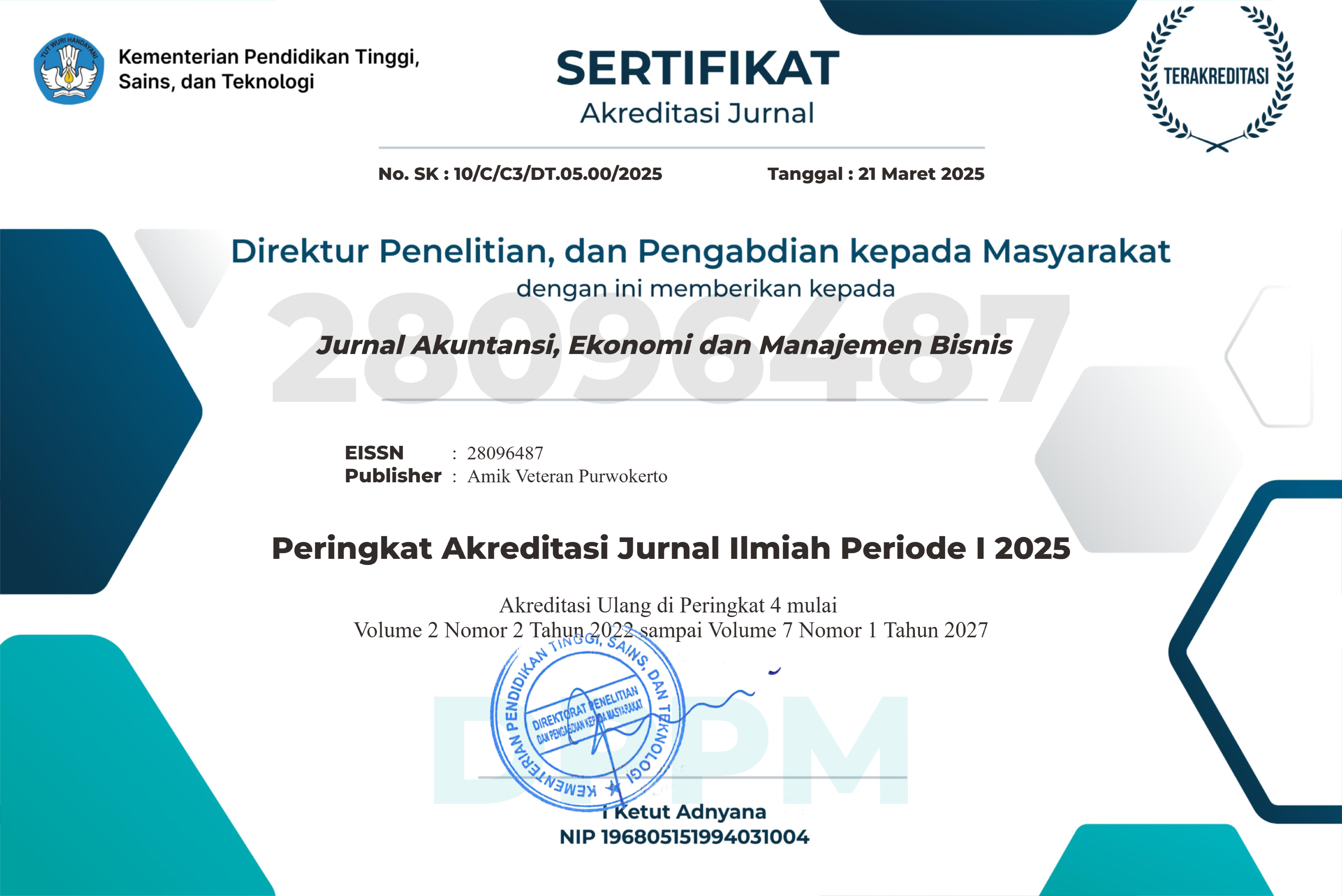Etika Bisnis dalam Ekonomi Digital
Studi Kasus Penerapan Prinsip Kejujuran pada Platform E-Commerce UMKM di Indonesia
DOI:
https://doi.org/10.55606/jaemb.v5i1.5968Keywords:
Digital marketing, Honesty, Islamic business ethics, MSMEs, Marketing ethicsAbstract
The digital transformation has significantly reshaped marketing strategies, especially for Micro, Small, and Medium Enterprises (MSMEs) in Indonesia. In digital marketing contexts, honesty emerges as a crucial ethical concern, as business actors face temptations to manipulate information for immediate gains. This study aims to explore the practice of honesty in digital marketing among MSMEs and examine the role of Islamic business ethics in shaping ethical behavior. Employing a qualitative case study approach, in-depth interviews were conducted with MSME actors actively utilizing digital platforms for product promotion. Findings reveal that honesty in conveying product information is a key factor in building consumer trust, and MSMEs internalizing Islamic ethical values demonstrate greater consistency in practicing honest marketing. This research offers significant implications for developing sustainable, value-based MSME business models and provides strategic input for policymakers to design contextual digital business ethics regulations and training programs.
References
[1] Aminah, U. (2022). Impact Analysis SME's Knowledge Towards E-Commerce Transaction on Islamic Business Ethics. Palopo Journal, 1(1), 1-10. https://ejournal.iainpalopo.ac.id/index.php/pj/article/view/3929/2275
[2] Ardiarmen, A. (2023). Exploring Ethical Business Practices in Sustainable Digital Marketing Among MSMEs. Manuhara Journal, 2(1), 15-30. https://journal.arimbi.or.id/index.php/Manuhara/article/download/856/824/3548
[3] Armen, A. (2023). Exploring Ethical Business Practices in Sustainable Digital Marketing Among MSMEs. Manuhara Journal, 2(1), 15-30. https://journal.arimbi.or.id/index.php/Manuhara/article/download/856/824/3548
[4] Braun, V., & Clarke, V. (2006). Using thematic analysis in psychology. Qualitative Research in Psychology, 3(2), 77–101. https://doi.org/10.1191/1478088706qp063oa
[5] Cennamo, C., Ozalp, H., & Kretschmer, T. (2020). Platform architecture and quality trade-offs of multihoming complements. Information Systems Research, 31(2), 585–603. https://doi.org/10.1287/isre.2019.0901
[6] Creswell, J. W. (2013). Qualitative Inquiry and Research Design: Choosing Among Five Approaches (3rd ed.). SAGE Publications.
[7] Hidayat, A., & Hasib, F. (2015). The Urgency of Islamic Business Ethics in the Era of Globalization. Journal of Islamic Banking and Finance, 3(2), 45-60. https://ejournal.stebisigm.ac.id/index.php/isbank/article/download/706/310
[8] Keraf, S. (1998). Etika Bisnis: Tuntutan dan Relevansinya. Jakarta: Gramedia.
[9] Kotler, P., & Keller, K. L. (2016). Marketing Management (15th ed.). Pearson Education.
[10] Nur, M. (2017). Etika Bisnis Syariah dalam E-Commerce. Jurnal Ilmiah Ekonomi Islam, 3(2), 45-60. https://journal.undiknas.ac.id/index.php/JAH/article/download/6097/1721/18091
[11] Schlegelmilch, B. B. (2016). Global Marketing Ethics: Problems and Perspectives. Springer International Publishing. https://doi.org/10.1007/978-3-319-21233-4
[12] Velasquez, M. G. (2002). Business Ethics: Concepts and Cases (5th ed.). Prentice Hall.
[13] World Economic Forum. (2021). Why e-commerce is key to Indonesia's small businesses. https://www.weforum.org/stories/2021/11/why-ecommerce-key-to-indonesias-small-businesses/
Downloads
Published
How to Cite
Issue
Section
License
Copyright (c) 2025 Jurnal Akuntansi, Ekonomi dan Manajemen Bisnis

This work is licensed under a Creative Commons Attribution-ShareAlike 4.0 International License.








